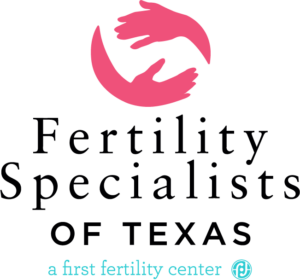Endometriosis treatment helps many women fulfill the dream of motherhood
Our Texas fertility clinic provides effective endometriosis treatment, along with evaluations that can help ensure we provide women with the right diagnosis. Endometriosis is a condition in which endometrial tissue, which typically lines the inside of the uterus, grows outside of it. The tissue can impair the ovaries and fallopian tubes, and sometimes leads to the formation of cysts. In addition to causing fertility issues, this condition can cause considerable discomfort.
How to know when to receive an evaluation for endometriosis
When women experience symptoms of endometriosis, it’s important to seek support from a fertility specialist. This specialist can order helpful evaluations and assess if a woman’s symptoms are consistent with endometriosis.
Several symptoms could indicate that a woman is a good candidate for endometriosis treatment.
- Strong menstrual cramps
- Heavy menstrual flow
- Lower back aches
- Painful urination or bowel movements
- Discomfort during intercourse
- Bloating
- Constipation
- Nausea
When a woman seeks support for endometriosis symptoms, a doctor at our Texas fertility clinic will review her medical history, then likely recommend an ultrasound and pelvic exam. In some situations, the patient might require an MRI or laparoscopy before the doctor can make a diagnosis.
After a woman receives an endometriosis diagnosis, she works with the doctor to develop an endometriosis treatment plan.
An endometriosis treatment plan can include various options
A woman who is not trying to conceive can likely manage endometriosis symptoms by adjusting her diet and taking medication, such as birth control.
Women ready to start their families might require treatment for endometriosis before trying to conceive, or may need certain fertility treatments to become pregnant.
Laparoscopy. Laparoscopy is a minimally invasive surgery in which the doctor removes endometrial implants and scar tissue that might impede ovulation, fallopian tube access and embryo implantation. Because the scar tissue often grows back over time, a woman might require laparoscopy more than once.
IUI, or intrauterine insemination. An IUI is a fertility treatment that involves the patient monitoring her ovulation and coming to our Texas fertility clinic the day after ovulation likely occurs. The doctor then uses a catheter to insert sperm from the woman’s partner, or sperm donor, into her uterus, in hopes of achieving a pregnancy.
IVF, or in vitro fertilization. If laparoscopy and IUI do not result in pregnancy, or if the fallopian tubes are blocked, the patient might require IVF to become pregnant. This highly effective fertility treatment begins with the woman taking ovulation induction medications while receiving regular monitoring at our clinic.
When enough eggs mature, the doctor retrieves them during a short procedure and sends them to the IVF lab. An embryologist then fertilizes the eggs with sperm from the woman’s partner, or donor, and the doctor transfers one of the resulting embryos into the woman’s uterus.
Our clinic team understands the challenges of endometriosis and works closely with patients to help ensure this condition doesn’t stop them from building their families.
Contact us for more information about fertility treatments.

